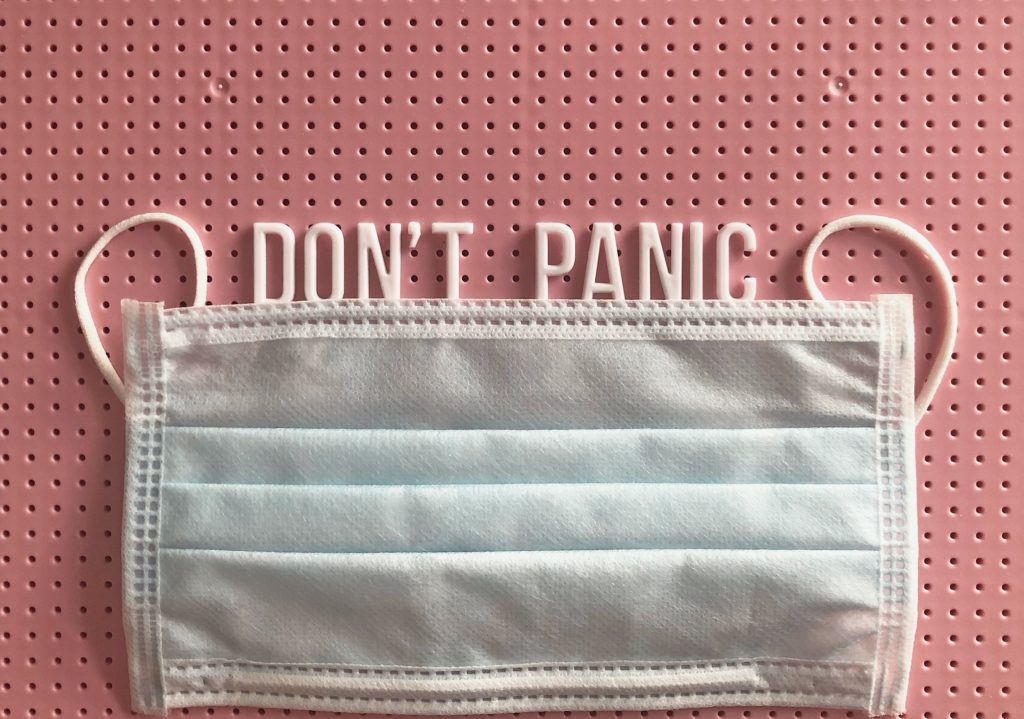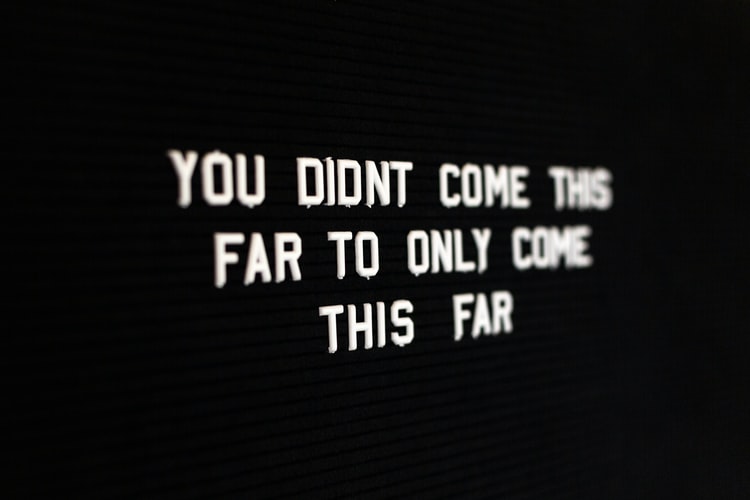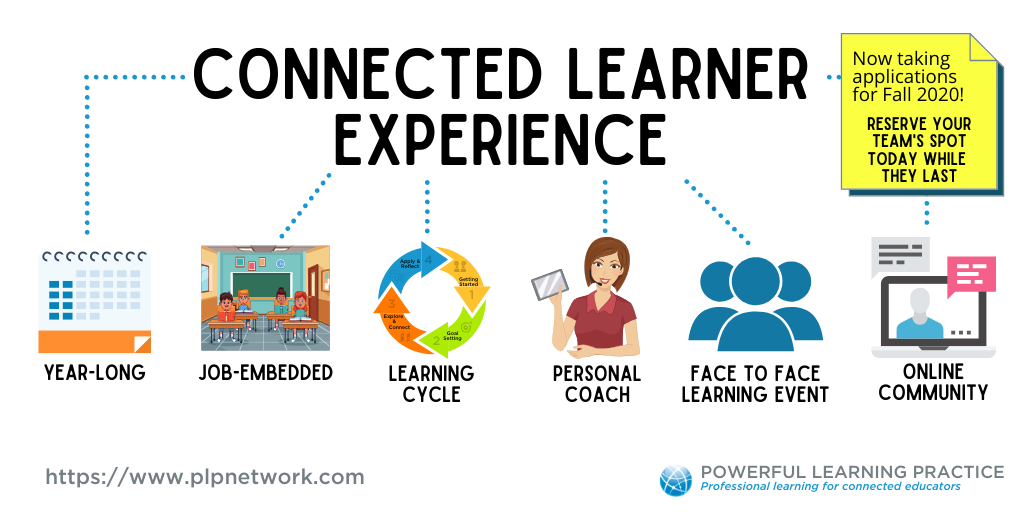
Fear Led
In talking to leaders, teachers and parents, the one thing I am hearing over and over is everyone- and I mean everyone- is scared. Scared of the unknown. Scared of change. Scared to go back to work. Scared to NOT go back to work. Scared of getting sick. Scared for their own children, do we keep them home or send them to school? Scared about knowing what to do, what not to do, and how to do what we are being asked to do. Some of us are scared that everything about school and learning is changing. Others are afraid not enough is changing as we bring our classrooms and learning online. Many of us are finding ourselves paralyzed with fear. We have given up hope and in the absence of support, do nothing.
Fear makes us face our own frailty, our vulnerability and our ineptness. We all question our worth when we are afraid. We ask ourselves questions like: Am I good enough? Do I have the energy to reinvent myself after all this time? Am I strong enough, smart enough, flexible enough, to lead in such a time as this? Can I learn how to use technology with all the other stressors in my life right now? No matter what we do, the negative voice inside our head simply will not shut up.
Fear is a Liar
The good news is most of the fear, doubt, and unbelief we experience as negative story lines we tell ourselves, is clearly untrue. The truth is fear can serve as a motivator. It helps us negotiate what is needed and to find what works. Fear pushes us to the edge of the unknown and then requires us to jump while we build our wings on the way down. It forces us to keep calm, take a few deep breaths and then (especially as educators) shift the focus to something positive, the kids and their needs.
“Fear doesn’t shut you down; it wakes you up.” – Veronica Roth
In my life, I have found that if I starve the fear and feed the hope things always turn around. And one of the best ways to keep hope alive as an educator is through community, collaboration, and coaching.
Moving Your District, School, Classroom from “Survive to Thrive”
I am fond of saying, “None of us is as smart, clever, or as capable as all of us.” And it is true, we need each other to thrive. As educators, when we cluster together in communities of practice or inquiry, especially online, we are able to learn from and with each other. As we share what worked or didn’t work in our efforts to recreate ourselves or meet the needs of our students and parents, we build collective intelligence over time. This knowledge base becomes invaluable in pursuing excellence in our new circumstance. It keeps us from recreating the wheel.
Plus, there is strength in numbers. Where I am weak, you are strong and vice versa. Community means relationship. Knowing how to build trust and relationship together online is vital to thriving during fast, paced change, such as throughout a pandemic.
What was missing last spring when we were force to shut down was the understanding of how to bring the sense of community, safety, and the feeling of belonging into our new online classrooms. Building community takes some planning, preparation, and work, but the payoff is huge.
Communities of practice are important because they:
- Connect people (often from around the world) who might not otherwise have the opportunity to interact at all.
- Provide a shared context for people to communicate and share information, stories, and personal experiences in a way that builds understanding and insight.
- Enable dialogue between people who come together to explore new possibilities, solve challenging problems, and create new, mutually beneficial opportunities.
- Stimulate learning by serving as a vehicle for authentic communication, mentoring, coaching, and self-reflection.
- Capture and diffuse existing knowledge to help people improve their practice by providing a forum to identify solutions to common problems and a process to collect and evaluate best practices.
- Introduce collaborative processes to groups and organizations as well as between organizations to encourage the free flow of ideas and exchange of information.
- Help people organize around purposeful actions that deliver tangible results.
- Generate new knowledge to help people transform their practice to accommodate changes in needs and technologies.(©2005 Darren Cambridge, Soren Kaplan, and Vicki Suter)

Solving Problems is Easier with an Expert by Your Side
At Powerful Learning Practice, our Connected Coaches, through activities and protocols, support participants in our Connected Learner Experience (i.e. Remote and Hybrid learning 101) by co-creating together, in planning, designing, researching and evaluating the shifts to remote, blended and hybrid curriculum work. Without coaches helping your teachers (and leaders) you’ll find something is missing. Conversations seem to fall flat. Educators will share in the online spaces you provide, but no one replies with depth, extending ideas, or asking questions. When grounded in empirical research, paired with community, coaching and collaboration, your school/district is able to build a culture of inquiry and trust in the middle of extreme change. However, the members in a school community that is void of coaches, especially coaches who know how to connect and collaborate online, often continue to work in silos of isolation. The interactions lack the collegiality needed for relationships to grow and collective inquiry to emerge. Nothing much changes.
It has been my experience over 13 years of facilitating learning and growth in online environments (plus the research backs it up) that without trust and the willingness to ask hard questions and to engage in messy conversations, your faculty will never fully break through the fear and realize their own considerable potential to shift their learning landscape- especially in a time such as this.
Connected Coaches help to fill the void; they support educators in finding their online voices and in helping to enable continuous, concrete and specific conversations with each other about the shift in teaching practice, especially in scary places such as new and different contexts. We have found that by having a coach by your side during systemic change (forced or planned) enables empowered, self directed, confident educators, not paralyzed by fear.
Help Is On The Way! 2020-2021
If you are wondering how can you provide the scaffolding and support for all the educators in your organization to learn what they need to know, exactly when they need to know it, then you should consider putting a team or two in the Connected Learner Experience.
I am NOT talking about more work, extra time, or one more thing to do or learn. I am talking about having a seasoned, expert standing close by as challenges arise and hard conversations and issues present themselves.
Powerful Learning Practice has been doing remote and blended learning for over a decade. We have been offering year-long, job-embedded, coaching that is organized in seven learning cycles and chalked full of need to know remote and hybrid content way before the pandemic. We know what to do.
In addition to the predetermined content, teams bring their challenges to the online community and we are immediately responsive by creating customized learning activities, videos, webinars, or 1-1 solutions designed to address the issue. There are add-ons for busy educational leaders and coaches for the instructional coaches. Additionally, anyone who puts a team in CLE gets a 40% discount on all of the self-paced courses in our catalog. In other words, putting a team of 3-10 people into the Connected Learner Experience allows you to license as many educators as desired in our courses, not just the participating team. You may be wondering is it affordable? Yes, we are still charging the same thing we did in 2007, we have never raised our prices. And best of all, the Connected Learner Experience can be paid for with CARES Funding.
Want to know more? Sign up for an Info-Session. Or maybe you have heard enough and you are ready to save your team’s spot?
Hurry, we only allow 20 teams in a cohort. Kickoff starts in the fall but onboarding in the community and with the courses can happen whenever is best for you.

Latest posts by Powerful Learning Practice (see all)
- Hurry, you do not want to miss out on this… - November 3, 2020
- Resist the Urge to Quit Prematurely - October 26, 2020
- Let’s Move Past Feeling Disconnected from Your Students. Words Matter - October 24, 2020

